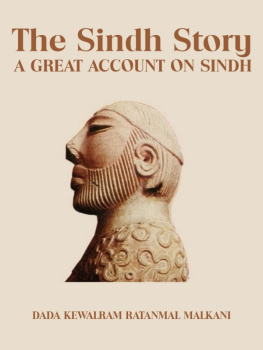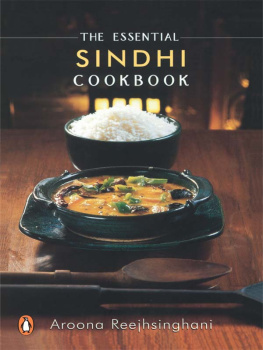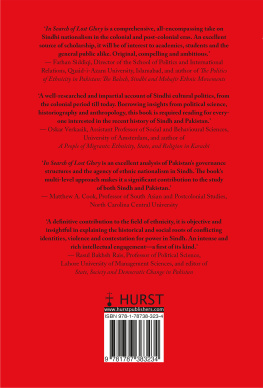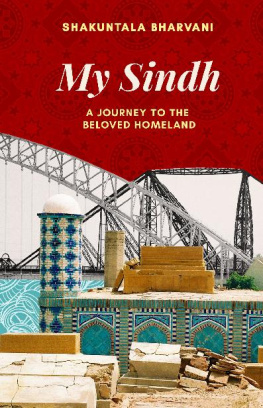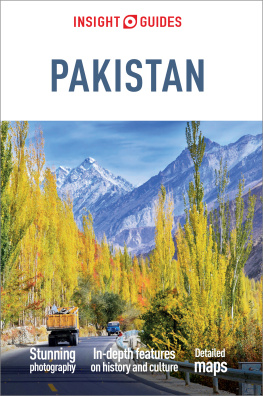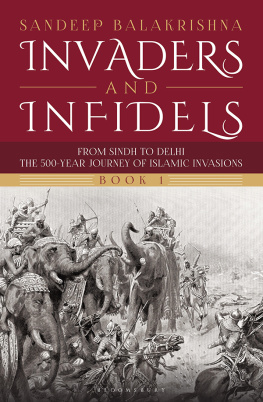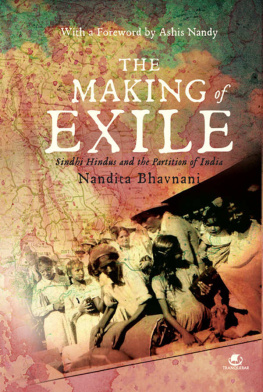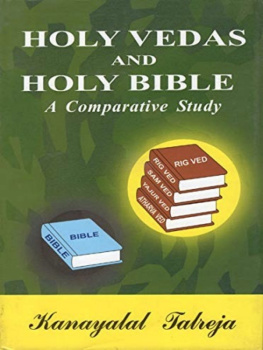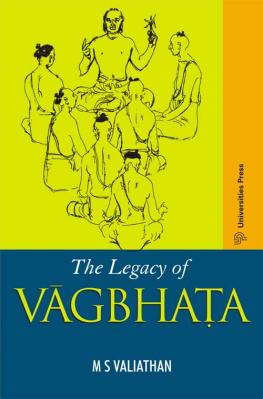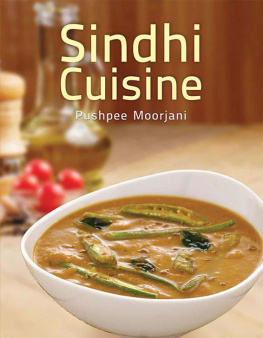The
Sindh Story
A Great Account on Sindh
Dada Kewalram Ratanmal Malkani
(K. R. Malkani)
Dedicated
to
the sacred memory
of
Allah Bux Soomro
&
Bhagat Kanwar Ram
Allied Publishers Private Limited
K. R. Malkani 1984
No part of this publication may be reproduced, stored in a retrieval system or transmitted in any form for direct commercial profit, without the prior written permission of the author.
The book is created and cover designed by 'The Rddler' & 'Cadzbuddy'
Content
Preface to Reprint
"The Sindh Story" was first published in 1984. Within months the book was sold out. Sheikh Ayaz, the leading poet and intellectual of Sindh, said "It is a book which should find a place in every Sindhi home." Soon after, Taj Joyo (Kandiaro Sindh), rendered the book in Sindhi and published it in Pakistan under the title 'Sindh Kahani'. More recently Mani Shankar Aiyar, well-known columnist, wrote: "It is a scholarly book, a fun book, a passionate book, a nostalgia book..." Meanwhile Gul Agha of the Department of Computer Science, University of Illinois, Urbana, USA, put the book on Internet. However, what convinced me more than anything else about the need to reprint the book was a letter from a young man, Aziz Kaleiri (Matiari Sugar Mills, Matiari, Hyderabad Sindh) who had read the book in Sindhi. This letter in Sindhi, received by me on Jan. 11, 1994, moved me to my depths. It said:
"Sir, I was born in 1966. 1 was not witness to the gross injustice done to you (Hindus) and to Sindh at the time of Partition. But when I read the accounts of those times and see the edifices left behind by you, I cannot help crying. When I ponder over your forced migration from Sindh, I feel that Sindh today lives only a fragmented, fractured existence. For long I have been wanting to correspond with a Sindhi in India so that I can re-integrate my splintered self. And recently I had the opportunity to read the Sindhi translation of your book 'The Sindh Story'. This book carried your address.
"I am bewildered. Many times I wake up in the morning with sobs. I have read the travelogues of Imdad Ali Serai and Mahatab Mahboob and their talks with Sindhi brethren in Hindustan. From these I have learnt of your great love for, and attachment to, the land of Sindh. I have recalled all that with tears. There is no sorrow, and no deprivation, as serious as the loss of ones own land of birth.
"I am sorry that Prof. Ram Punjwani, Master Chander and Mohan Kalpana left this world with the sorrow of Sindh in their hearts. I am reminded of what Sheikh Ayaz said on the passing of Narayan Shyam. 'Your sorrow was swept to the sea by the waters of Ganga while the Sindhu threw its arms about in vain.'
"Hope seems to be fading that : 'Things will change; it will rain again, and the days of separation will be over.'
"Sir, I belong to Kandiaro in Sahiti region which also has the holy town of Halani. Here, even now, the harvest season is marked by Vaisakhi Mela. But I feel- "The cotton trees don't have their old blossoms; the spinners are gone; the sight of empty shops only fills me with a deep sadness. "
"I am a broken splinter of your own life, Aziz Kaleiri."
My reply of January 13, 1994 to Aziz read:
"Your undated letter to hand. It had the sweet smell of Sindh in it. Thanks. Perhaps what happened, had to happen. As the Poet puts it
'The Moving Finger writes; and, having writ, moves on.'
"For our Muslim brethren, the demand of Pakistan was like the proverbial 'Delhi ka ladoo' : you regret it if you eat it; and you regret it if you do not eat it. For us Sindhis, Hindustan was like maternal grandmother's house (Nani-a jo ghar).
"As I see it, Hindus, Muslims and others, whether in Hindustan, Pakistan or Bangladesh, are all one. We are three states but, from Khyber Pass to Kanya Kumari, we are One People.
"This whole area is like a Jhoola in which we play a great deal and, at times, quarrel a good deal. May God's grace help us stop our quarrelling and live in peace. For as Shah Saheb has said : 'Separation re-unites us even more warmly, than just being together'. And as Shah Saheb has also said: 'Don't give up hope; God is great in His mercy'.
"May Sindhu Darya flow full. May everybody be happy. 'May the Lord bring rains and abundance to Sindh.' (Saaein Sadaein Karein Mathay Sindh Sukar). "
I never heard from Aziz. Obviously because he never got my letter. Such is the Iron Curtain between India and Pakistan. I only hope that a letter from an Indian M.P. did not get dear Aziz into any trouble with the authorities. But books are the voice of the people. They can by-pass this curtain.
It is, therefore, a matter of great satisfaction that Sindhi Academy, Delhi, has decided to reprint the book. It was, not found necessary to revise the book because the historical part is history and 'The Sindhi Revival' after Partition has beautifully maintained its tempo. The only addition-apart from this Preface-is the Appendix, which is a report on Mr. G.M. Syed's memorable visit to India in 1987. It will be read with the greatest interest. When that Grand Old Man of Sindhudesh passed away, tributes were paid to his heroic memory in the Rajya Sabha (April 26, 1995) not only by the undersigned (BJP) but also by Mohammed Salim (CPI-M) and Syed Sibte Razi and S.S. Ahluwalia (Congress).
My grateful thanks are due to Prof. D.L. Kaka, Dr. Motilal Jotwani, Prof. K.N. Vaswani and Hiro Thakur for their valuable suggestions for this reprint.
K.R. MALKANI
13-D Ferozeshah Road,
New Delhi-I 10001. July 4, 1997.
Preface
It was in Sindh towards the end of 1947. Partition had taken place and Hindus were leaving the province in large numbers. One day some of us RSS workers were walking down Tilak Incline in Hyderabad. Suddenly an elderly Muslim lady coming from the opposite direction stopped in front of us and asked in pain: "Brothers, will you, too, go away?''
One day I was standing in my balcony. A Muslim gentleman was happily carrying a big framed group photograph Soon he could contain his joy no more. And so he stopped, held up the picture for me to see and said he had just bought it because of the respected Seth of his village sitting in that group. It was a great memento for him.
One day I was travelling in a city bus. The front seats were reserved for women. Suddenly a Muslim lady sitting in front noticed that an elderly Hindu neighbour was standing. She got up and insisted on the man taking her seat. In vain did the man protest that he was alright standing, and that, in any case, those seats were reserved for women. He had to sit down as the lady persisted with an anguished voice: "I know, you, too, will go away.''
I'm not sure there were many areas in the India of 1947, where incidents like these could occur.
While Sindhis in India have made good here and abroad, Sindhis in Sindh have launched themselves on a course that can only lead to the eventual winding up of Pakistan.
Only last year I had a visitor from Sindh. When his friends learnt that he was visiting this side, they laughed and told him in the open bazar: "Don't come back alone. Bring the Indian Army along. And tell Mrs. Gandhi to send us dhotis by helicopter in advance, so that we can welcome the Indian troops in suitable style.''
`The Sindh Story' is not a tale of kings and wars. It is an attempt at understanding an area, its people and their local culture, that have made all this possible.
I am grateful to Bharatiya Sindhu Sabha for planting the idea of this book in my mind --- and to my sister Gopi for encouraging the good thought. I am also grateful to many friends who supplied books and photographs and valuable information. In this connection I must thank Mohini Mansukhani, Ramakrishna Advani, Prof. K.N. Vaswani, Sewakram Karamchand, Uttamchand Issrani, Vishnu Shahani, Prof. D.L. Kaka, Gopal Gurbuxani, Gopal Mittal, Ram Keswani, Prem Daswani, Prof. M. P. Lakhani, Lakshmichand Rupchandani, Narayan Wadhwani and Gobindram Chellani.
Next page
